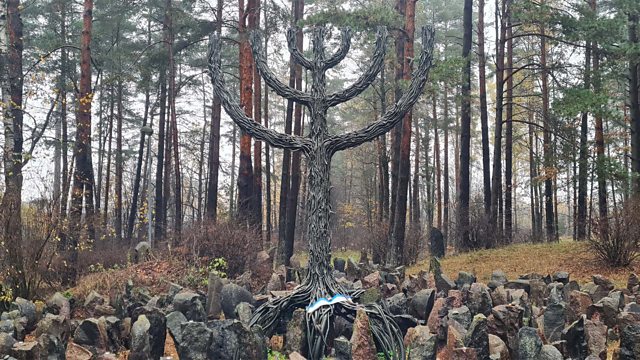The Black Book
Why was the Black Book, a unique chronicle of the Nazi extermination of Soviet Jews banned?
As the Nazi invasion of the Soviet Union swept over vast areas of Ukraine and Belorussia from the summer of 1941, over three million Jews were deliberately targeted for annihilation. Shot, hung, butchered, a million and a half Jewish souls were buried in vast pits in Babi Yar, Rumbula, Mariupol, Minsk, Kyiv and Riga. Many accounts began to flood into the Soviet Union where journalist and writer Ilya Ehrenburg began gathering testimonies of the mass murder. This became The Black Book, a project now under the auspices of the Jewish Anti Fascist Committee,
Many writers of the Black Book lost relatives. All felt bound to record and convey the sense of loss and the scope of the Nazi's crime. The project would become international - there would be Black Books in America and elsewhere. Then a new, terrible silence was imposed on Stalin's orders. The Black Book was taken off the presses, banned and would not see the light of day for another 40 years. Many of those involved in its preparation would be persecuted or murdered as part of a new anti-Semitic campaign in the last years of Stalin's rule.
Historian Catherine Merridale travels to Riga, Latvia and Yad Vashem, where the Black Book was smuggled, to uncover this complex story of loss, silence and rediscovery.
Presenter: Catherine Merridale
Producer: Mark Burman
(Photo: Rumbula Forest, Riga, site of mass murder of 25,000 Jews in the winter 1941)
Last on
More episodes
Broadcasts
- Sat 21 Jan 2023 19:06GMTΒι¶ΉΤΌΕΔ World Service
- Sun 22 Jan 2023 12:06GMTΒι¶ΉΤΌΕΔ World Service

